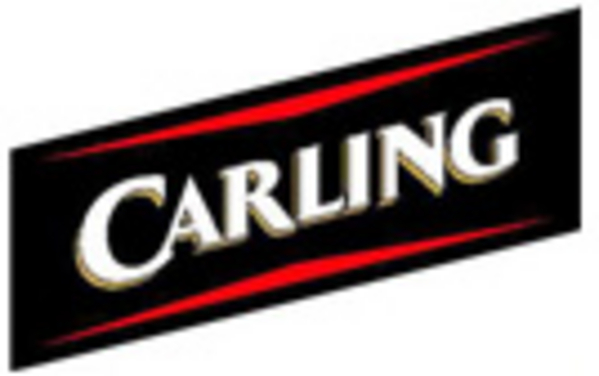Brewers' price hike will kill more pubs
Added: Tuesday, February 10th 2015

The big brewers know how to put the boot in. First came the shocking news that, for the first time ever, sales of take-home beer have overtaken draught beer in pubs. Then Carlsberg, Heineken and Molson Coors twisted the knife by increasing wholesale pub prices by around 5p a pint.
Repeat: that’s the wholesale price. By the time the increases work their way to the bar, we could see beer costing 12p more a pint.
The result will be more drinkers heading to supermarkets and booze stores. “Cheaper beer now!” trumpets Tesco, offering 20 bottles of Beck’s for £10. That’s 50p a bottle.
With Six Nations Rugby, ever more football and golf on TV, and an Ashes series this summer, the supermarkets will be awash with cut-price beer for months. Is it any wonder pubs are closing at the rate of 30 a week?
The increases in pub prices average between 2.9% and 3.5%. The impact can be measured by the hike in Heineken’s prices, with an 11-gallon keg of Foster’s rising by £5.05 and an 11-gallon keg of Strongbow by £4.58.
Enterprise Inns, one of the country’s major pub companies, immediately jumped on the bandwagon by announcing an average 2.9% increase in its beer, lager and cider prices. A spokesman for Enterprise said: “The increase reflects the widely-reported increases in wholesale prices of between 2.9% and 3.6% for top-selling brands from leading suppliers, who cite rising manufacturing costs as the reason for their higher prices.”
Benjamin Franklin famously said there are only two certain things in life: death and taxes. If he were around today, the American revolutionary could add the additional certainty of the big brewers’ annual bleat about “rising manufacturing costs”.
What are those costs? The main raw materials that go to make beer are malted grain and hops. Grain is the major cost but there have been no increases in either the cost of barley or the malt it produces.
A spokesman for Robin Appel, a major barley merchant in Wiltshire, told me: “I scratched my head a bit when I heard about rising costs. Malting barley prices have fallen dramatically over the past few months due to the large global market.
“Molson Coors would know about this as they buy and malt their own barley.”
And Warminster Maltings, also in Wiltshire, told me suggestions that grain prices had increased “is baffling. It doesn’t reflect the current competitive market for malt.”

Hops, while adding essential aroma and bitterness to beer, account for a small element of the cost of brewing. British hop growers have had a torrid time in recent years, fighting against a flood of imported hops from both North America, mainland Europe, Australia and New Zealand.
Ali Capper, who chairs the British Hop Association, says prices are beginning to “firm up but hop farming is way off being profitable.” She said a farmer in Herefordshire who had stopped growing hops but had thought of planting them again took one look at current prices and declared: “They’re less than they were 10 years ago.”
Mike Rowlands, director of Guardian Leisure, told the trade paper Publican’s Morning Advertiser: “There is absolutely no justification for wholesale prices to increase at this moment by about 12p retail -- apart from it being customary for the brewers to raise prices each year at this time.
“Most of their operating and ingredients costs have reduced in the past year.”
One angry publican told the PMA’s website: “With all the principal core products for brewing cheaper than last year and fuel prices in free fall, how can they justify any price rise?” The cost of fuel is usually one of the key reasons why the brewers raise prices but that argument falls as flat as a pint of stale beer in 2015.
So if barley and malt prices have fallen, the cost of hops is stable and fuel prices are down, Molson Coors claim that “rising input prices” has forced it to put up prices is enough to make a constipated horse laugh.
Independent brewers are not following the global giants. Mike Benner, managing director of SIBA, the Society of Independent Brewers, told me he wasn't aware of any of his members planning to increase prices. At the National Winter Ales Festival in Derby, both Burton Bridge and Castle Rock breweries said they had no intention of raising prices.
The big brewers are engaged in a cynical exercise, making pubs bear the cost of the heavily-discounted beer sold to high street retailers. With off sales now outstripping pub sales, the brewers are more than ever dependent on supermarkets for the bulk of their sales.
But as a result of the deep discounts demanded by Tesco and Co, profits in the off trade are marginal. Molson Coors once admitted to me it makes one penny a pint profit on Carling in the off trade.
It’s the economics of the mad house. And to make up the shortfall, hard-pressed publicans and their customers pay through their noses for draught beer.
With millions of people facing a cost-of-living crisis, is it any wonder they quit the pub and buy discounted beer from supermarkets? More publicans will pull down the shutters and communities will wither and die.
Ben Franklin also allegedly said “beer is the proof God loves us”. But where the big brewers are concerned, the Devil has all the best tunes.





